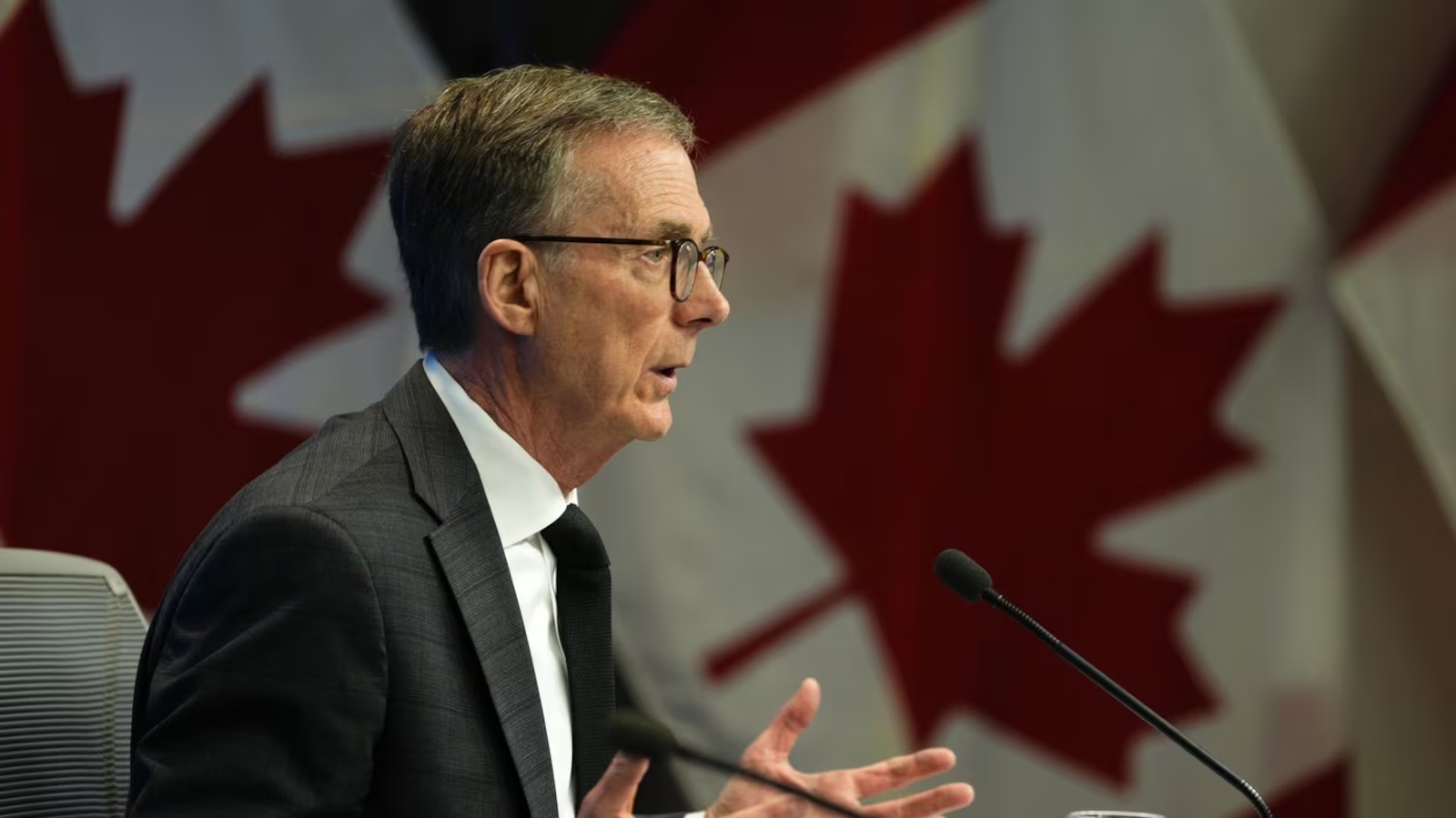Bank of Canada Governor Tiff Macklem says Canada’s heavy dependence on the United States has left the economy vulnerable, and warned that the country is now facing lasting consequences from U.S. President Donald Trump’s tariff policies. Speaking to Saskatchewan business leaders in Saskatoon on Tuesday, Macklem argued that Canada missed its chance to diversify after the 2008 financial crisis and must now act decisively to build new markets abroad.
“Everyone talked about diversification then, too. But not much happened,” Macklem said, recalling how Canadian businesses lost urgency once U.S. demand returned after the recession. This time, he stressed, Canada cannot afford complacency. Unlike past downturns, he said, there will be no bounceback in growth unless businesses and policymakers take steps to restructure parts of the economy.
The warning comes as the Bank of Canada has lowered its benchmark interest rate to 2.5 per cent amid mounting signs of weakness. Real GDP fell in the second quarter of 2025 as exports slumped, while Canada’s labour market is faltering in tariff-hit sectors such as steel, aluminum, autos, and softwood lumber. Exemptions under the Canada-U.S.-Mexico Agreement are cushioning some industries, but Macklem noted that tariffs from China, particularly on canola, are biting hard in Saskatchewan.
So far, the impact of U.S. tariffs has been less severe than feared, but Macklem cautioned that the full damage is still to come. He urged business and political leaders to invest in better transportation corridors, modern port infrastructure, and to make greater use of Canada’s existing trade agreements with Asia and Europe. At home, he called for tearing down interprovincial trade barriers, harmonizing regulations, and cutting approval times to boost productivity. Together, he said, these measures could lift Canada’s growth path above the trajectory it was on before tariffs began to weigh.
“Canadian leaders – business, political and economic leaders – need to chart a new course,” Macklem said. “We should have been making these changes 15 years ago. But the next best time is now.”
Macklem also used his speech to criticize Trump’s interventions in U.S. monetary policy. The president has sought the removal of Federal Reserve Governor Lisa Cook and has reportedly floated firing Fed Chair Jerome Powell, despite the Fed’s decision last week to trim rates by a quarter point in line with Canada. Macklem warned that political interference risks undermining financial stability well beyond U.S. borders.
“The lesson from history is clear … central banks that have operational independence for monetary policy do a better job at delivering price stability for its citizens,” Macklem told reporters, adding that Powell is “doing a very good job under very trying circumstances” by basing decisions on evidence rather than politics.
The Bank of Canada governor said that while the United States will always remain Canada’s largest trading partner, the moment has come to lessen that dependence. If leaders move quickly, he argued, Canada can not only blunt the damage from Trump’s tariffs but also position itself for stronger growth in the years ahead.

